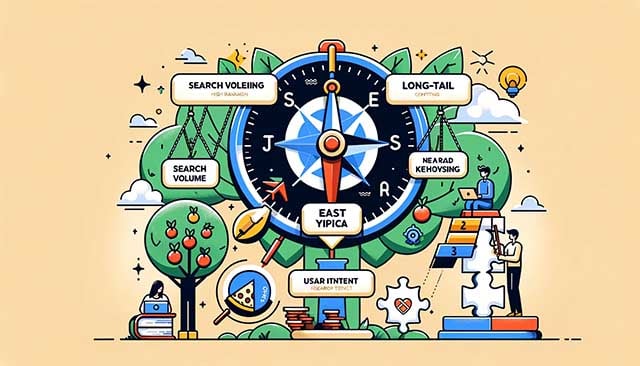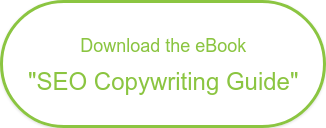Revitalizing Your SEO Campaign: A Guide to Success
- Home
- Revitalizing Your SEO Campaign: A Guide to Success
Once upon a time, in the sprawling metropolis of Digital Marketing City, I found myself standing at an intriguing crossroads. One path led to conventional strategies that had served me well; but the other, less trodden one beckoned with its allure of unexplored potential. It was named SEO campaign.
I took the plunge and chose this exciting yet mysterious route. The journey wasn't always smooth - there were times when my digital compass seemed askew amidst keyword jungles and link-building mazes.
Interestingly, this harmony isn't too different from a thriving ecosystem where diverse species coexist for mutual benefit. Successful SEO works the same way – it's about striking the perfect balance. You need potent keyword research married with top-notch content creation and innovative on-page optimization techniques tightly woven together with robust off-page strategies.
Table Of Contents:
- Understanding the Core of SEO Campaigns
- Unpacking the Key Components of an Effective SEO Campaign
- Mastering Keyword Research for Your Campaigns
- Harnessing On-Page Optimization Techniques for Better Rankings
- Leveraging Off-Page Optimization Strategies to Boost Your SEO
- Utilizing Content Marketing for SEO Success
- Implementing Technical SEO Best Practices
- Measuring the Success of Your SEO Strategy
- Integrating Your SEO Strategy with HubSpot
- FAQs about SEO Campaign
- Conclusion

Understanding the Core of SEO Campaigns
The heart of a successful digital marketing strategy often beats with the rhythm set by an effective SEO campaign. What is an SEO campaign, and why should its success be of importance to you?
Campaign management is a planned effort aimed at improving your website's visibility in search engines like Google. The ultimate goal? To climb higher up those precious Google rankings.
Moz describes it perfectly, stating that these campaigns involve different components such as keyword research, web audit, on-page optimization, and link building - all essential tools in our arsenal for battling obscurity online.
How Does a Search SEO Campaign Work?
You don't have to pay a professional to get started. To simplify things a bit, let's think about running a free SEO strategy.
No way would you just start running without knowing where it is or how far to go, right? Before trying to improve SEO, it's essential to identify objectives such as improving organic traffic or increasing conversions. You need to have clear goals before starting—this could be anything from boosting organic traffic to increasing conversions—and then map out steps towards achieving them.
A Deep Dive into Keyword Research
Diving headfirst into keyword research marks the beginning of any successful SEO journey. This involves identifying search terms, words or phrases that people are using when customers search for something online—your product or service included. Once we understand this language better—we can use it strategically to include keywords throughout our content so that search engines pick us out from the crowd more easily.
Fine-tuning On-Page Optimizations
Moving along our journey takes us deeper into the realm of on-page optimizations. This means adjusting various parts of your website to make it more appealing to search engines—like fine-tuning a race car for maximum performance. Things like title optimizing content, tags, meta descriptions, and even the way we do SEO copywriting and publish content itself are all adjusted and refined.
Building Links that Matter
Our next step is link building. But remember, it's not only about convincing other websites to link back to us.
Think of an SEO campaign as a well-planned journey to boost your website's visibility on search engines. Start by identifying keywords relevant to your product or service, then fine-tune your site with on-page optimizations and build valuable links. Just like planning a race, clear goals guide you towards success.

Unpacking the Key Components of an Effective SEO Campaign
An effective SEO campaign is like a well-oiled machine. Each component plays a vital role, and when they work together harmoniously, your website climbs the ranks in search engine results.
The Power of Keyword Research
Without knowledge of what type of fish are in the lake, fishing would be fruitless. You'd be unlikely to catch anything. The same principle applies to keyword research; it helps us identify our target - those elusive long-tail keywords that attract highly targeted traffic to your site.
We need these precise phrases because they align closely with users' intent. It's like using bait specifically designed for trout instead of any random worm – you’re bound to get better results. With good keyword research practices, we ensure that our digital marketing efforts aren’t wasted on uninterested visitors.
The Role of Content Creation in Search Visibility
A grand performance needs both an excellent script (content) and a great stage (SEO). Your content serves as an engaging narrative that keeps your audience interested while proper optimization ensures the content ranks and it gets seen by many eyes through higher search visibility.
Content creation involves crafting blog posts around target keywords without compromising readability or value provided to readers. In essence, authoritative content brings curious visitors who stay longer due to compelling storytelling combined with useful information—a good chance for success.
In addition, every piece should be tailored towards satisfying search engines' ranking factors and user queries alike: balancing relevance with practicality. This guide delves into creating optimized yet reader-friendly pieces so bookmark it for future reference.
On-page SEO Techniques:
- Using target keywords in title tags, headers, and meta descriptions.
- Ensuring internal linking between relevant posts to improve navigation and time spent on the site.
Off-page SEO Techniques:
- Putting a spotlight on link building, we're all about snagging top-notch inbound links from authority sites. It's like scoring a nod of approval from the bigwigs in your field.
your content, metadata and HTML tags. Off-page SEO refers to methods used outside your website like backlinks from other sites. It's a lot like getting recommendations or referrals - the more you have, the better. Remember, both on-page and off-page techniques are crucial for an effective SEO strategy.

Mastering Keyword Research for Your Campaigns
Keywords are the lifeblood of any SEO strategy. They're like a compass, guiding your content to rank higher in search engine results and reach the right audience.
Finding keywords is tricky. To truly master keyword research, you need to understand two things: keywords and search intent.
Keywords: The Key to Attracting Quality Traffic
You've probably heard about long-tail keywords before. These aren't just random words strung together; they're specific phrases that people searching online use. Think of them as low-hanging fruit on the SEO tree—easy pickings with high conversion potential.
The magic behind long-tail keywords lies in their specificity. While they might have a lower overall search volume than broader terms, they target a more focused audience who's likely closer to making a purchase decision.
Finding the Sweet Spot between Search Volume and Competition
Nailing down your keywords is only half the battle though. You also need to find that sweet spot where there are enough monthly searches (search volume) but not too much competition from other websites.
This can feel like trying to find Waldo at Times Square—but don’t fret. There’s help available in forms such as this complete guide from Google's Keyword Planner tool.
The Role of Search Intent In Crafting Winning Strategies
Let’s talk about search intent - it plays an equally important role alongside long-tail keywords when it comes to digital marketing strategies targeting specific audiences.
Imagine someone typing "Best pizza near me." Their intention? To satiate their craving find a nearby pizza joint, pronto. They're not looking for the history of pizza or how to make one. They want locations and fast.
Understanding this search intent can help you create content that satisfies your audience’s needs while simultaneously boosting your website's SEO ranking.
Putting Your Keyword Research into Action
After you've done your homework and collected all the necessary info, it's time to put everything together. It's a critical step in moving forward with confidence.
Keywords are your SEO campaign's compass, guiding you to higher rankings and the right audience. Understand how keywords work for quality traffic and search intent for targeted strategies. Find that sweet spot of high search volume with low competition using tools like Google's Keyword Planner. Finally, turn your research into action for a confident step forward.

Harnessing On-Page Optimization Techniques for Better Rankings
When it comes to SEO, on-page optimization is like your secret weapon. It's the little tweaks you make that let search engines know exactly what your content is about. So, how do we wield this powerful tool?
The Mighty Title Tag
Your title tag is a prime piece of real estate when it comes to on-page optimization. This concise descriptor not only tells users what they're in for but also communicates key information to search engines.
Keyword placement within your title tag can be a game-changer. But remember, balance is crucial here; cramming too many keywords might lead Google to think you're just keyword stuffing.
Crafting Compelling SEO Content
A good cook knows that quality ingredients make the best meals. Similarly, top-notch content forms the backbone of any successful on-page optimization strategy.
It’s not enough anymore to stuff an article with keywords and hope for higher rankings. Search engine algorithms have become smarter and now prioritize well-written content over everything else.
Anchoring Your Text Rightly
You've likely come across anchor text - those clickable words hyperlinked to another webpage or document online. Yes. They play a significant role in helping both readers and search engines understand context better by providing valuable internal links.
Sprinkling these wisely throughout your copy ensures readers stay longer (improving dwell time) while boosting crawlability & indexation as Google spiders navigate through interconnected pages more smoothly.
Finding Magic In Internal Links
The term 'internal linking' might sound techy, but a site link is quite straightforward. It simply means creating links within your website that point to other pages on the same site.
This technique is a double win. Not only does it improve user navigation (providing them more value), but search engines also love this as they get a clearer picture of your website structure and content relevancy.
Master on-page SEO by harnessing title tags, crafting compelling content, anchoring text correctly and using internal links wisely. Balance keyword usage in your titles to avoid stuffing while delivering high-quality content that search engines love. Use anchor texts for better context and internal links to boost user navigation and site structure understanding.

Leveraging Off-Page Optimization Strategies to Boost Your SEO
Off-page optimization is like the backstage crew in a theatre production. Though unseen, their efforts can either make or break the performance. Let's discuss some key strategies for off-page SEO that can elevate your site's authority and search engine rankings.
The Importance of Quality Backlinks
A backlink is essentially a vote of confidence from one website to another. But all votes are not equal; quality matters more than quantity. Think of it as getting an endorsement from Oprah Winfrey versus someone unknown – which do you think will have more impact?
Quality backlinks, those coming from relevant and authoritative sites, send strong trust signals to search engines about your content’s credibility.
You'll want to build backlinks, but how? Guest blogging offers one answer. By creating high-quality content for other websites related to your niche, you get exposure plus valuable inbound links.
Gaining Traction with Social Media Shares
Social media might seem unrelated at first glance because Google has stated they don't consider social shares in their ranking algorithm directly. However - yes there’s always a ‘however’ when it comes to SEO - posts shared widely on social platforms often catch the attention of bloggers and journalists who may link back in their articles.
In essence, great social media engagement can indirectly lead to quality backlinks.
Fostering Online Relationships through Forum Participation
Becoming an active participant on online forums such as Quora, Reddit, or industry-specific platforms can be a boon for off-page SEO. By answering questions and providing valuable insights you build relationships with potential customers while subtly promoting your content.
Remember to always prioritize providing value over self-promotion; otherwise, it's like crashing a party just to sell something – not cool.
Claiming Local Listings for Better Visibility
Then you must focus on local SEO strategies. This will help boost your visibility in local search results, drawing more customers both online and offline.
Off-page SEO is like the behind-the-scenes crew - vital, though unseen. Quality backlinks serve as a vote of confidence for your site and guest blogging can be a great way to get these. Social media shares may not directly boost rankings, but they grab attention from bloggers who might link to you later on. Engaging actively in online forums helps build connections with potential customers while subtly pushing your content forward.

Utilizing Content Marketing for SEO Success
In the dynamic world of digital marketing, content is king. But to wear this crown, you need more than just well-written articles or catchy headlines. You need high-quality content optimized not only for your audience but also for search engines.
The Impact of High-Quality Content on Your SEO Efforts
To truly harness the power of content marketing in boosting your SEO success, you have to focus on creating high-quality and authoritative content. It's no secret that Google loves valuable material - it gives a higher search rank to sites that publish relevant and engaging pieces regularly.
What does it mean to create something of quality? This phrase goes beyond mere grammar perfection or proper sentence structure; it speaks volumes about relevance, uniqueness, depth of insight and how effectively your post answers people searching online.
You see folks at Moz say, "Content creation plays a crucial role in improving search visibility." The goal here is clear: satisfy both users (with valuable insights) and Google bots (with easy readability).
Making Sense Out Of Keywords
A successful piece must be aligned with targeted keywords related to its topic – an essential optimization step if you're aiming for top spots in Google ranking. For instance: If we’re writing about mobile devices’ impact on SEO strategy – including terms like ‘mobile SEO,’ ‘SEO tools’, or ‘Google keyword’ within natural sentences can make our article appear when someone types these words into their browser’s address bar.
Finding Balance Between Creativity And Optimization
An important part of making sure that our blog posts meet user needs while still being loved by search engines is striking the right balance between creativity and optimization. While keywords are important, remember to use them sparingly - overdoing it may result in keyword stuffing, which can negatively impact your website's search rankings.
Instead of packing your content with as many SEO terms as you can, focus on delivering real value to your readers in each blog post. If they find helpful info in your articles, they're more likely to stick around.
Boost your SEO success by crafting high-quality, relevant content that satisfies both readers and search engines. Don't just aim for perfect grammar; provide unique insights and answer online questions effectively. Incorporate targeted keywords naturally without overdoing it - balance creativity with optimization to avoid keyword stuffing.

Implementing Technical SEO Best Practices
Your website's search engine rankings can significantly improve when you adopt technical SEO best practices. Having a neat and orderly website is like tidying up your house before having visitors over; it helps them locate what they need quickly and enjoy their time.
The Nitty-Gritty of Website Structure
Just as architects use blueprints to design buildings, web developers should plan out the structure of websites. A clear site layout lets search engines crawl your pages efficiently and understand the relationship between different content pieces.
To boost your website's search engine performance, focus on creating logical hierarchies with easy-to-follow navigation menus. Think of this process as designing an intuitive roadmap that guides both users and Google crawlers through your site’s wealth of information.
Making Your Site Mobile-Friendly
In today’s world where most people are glued to their mobile devices, ensuring that your website performs well on these platforms isn't just a nice-to-have feature; it's crucial. Having a responsive design adapts seamlessly across various screen sizes – much like how water takes the shape of any container.
This mobile-friendliness not only enhances user experience but also positively impacts Google ranking factors since Google uses 'mobile-first indexing'. In simpler terms, if two sites have similar content quality but one has better mobile optimization than the other, guess which one will rank higher?
Clean Up Those URLs
Clean URL structures aren’t just pleasing to human eyes; they’re loved by bots too. Imagine reading a book without chapter titles or trying to follow instructions written in gibberish—it wouldn’t be fun now, would it? Ensure your URLs are readable and keyword-rich to provide both users and search engines a clue about the page's content. So make sure your URLs are readable and keyword-rich to give both users and search engines a hint of what the page contains.
Speed Up Your Website
Have you ever found yourself sitting impatiently? Waiting around can be a frustrating experience that many of us have in common.
Site load times keep visitors happy and engaged. Make sure to create an easy-to-follow sitemap for Google crawlers, as it's akin to leaving breadcrumbs in a forest—it guides them through your site efficiently. The mobile-friendliness of your website isn't just about user experience; it also affects how high you rank on Google search results. Clean URLs aren't only pleasing to the eye but are bot-friendly too—Google loves simplicity. Lastly, don’t forget that fast-loading pages can be the difference between a new customer or a lost opportunity, so prioritize speed always.

Measuring the Success of Your SEO Strategy
The road to a successful SEO campaign is paved with data. It's like reading a treasure map; you need to understand where you're starting from, what your goal is and how far you've come.
A handy tool that lets us do this is Google Analytics. Think of it as our compass guiding us through the vast digital marketing landscape.
Diving into Organic Traffic Metrics
One key metric we use in an SEO campaign evaluation is organic traffic. This refers to visitors who find your website by using search engines rather than directly typing in your URL or clicking on ads. These folks are like those friends who unexpectedly drop by for coffee – always welcome.
In Google Analytics, go under Acquisition > All Traffic > Channels, and there it will be: organic search traffic stats waiting for exploration. You'll see things such as user behaviour metrics including bounce rate (those people who just didn't feel like staying), session duration (the time spent sipping virtual coffee at your site) and pages per session (how much they felt like exploring).
Utilizing Google Analytics for Deeper Insights
We also leverage Google Analytics because it offers deeper insights about our users' demographic details—age range, gender—and their interests which help us tailor content more effectively.
You can access these nuggets of information under Audience > Demographics/Interests in the Google Analytics dashboard but remember not everyone shares their age or gender so some data might be missing here.
Beyond Raw Numbers - Understanding User Engagement
Sure raw numbers are exciting. Who doesn't love seeing web visits skyrocket? But measuring success isn't just about counting visitors. It's like throwing a shindig - you wanna know if your guests are having a blast.
That’s where engagement metrics come in. We look at the bounce rate (did they take one look and decide it wasn’t their scene?), pages per session (how many rooms did they explore?), and average session duration (how long did they stay?).
Use Google Analytics as your guide in the SEO journey, measuring success by visitor numbers and user engagement. Explore organic traffic metrics and delve into demographic details to tailor content effectively. Remember, an effective SEO campaign isn't just about attracting visitors—it's like hosting a party; you want guests to enjoy themselves.

Integrating Your SEO Strategy with HubSpot
As we plunge into the world of SEO campaign management, it's crucial to have a reliable platform that helps manage your campaigns effectively. And this is where HubSpot, an all-in-one inbound marketing tool, shines.
The Intersection of Social Media and SEO on HubSpot
Integrating social media into digital marketing strategies is now essential for businesses to effectively reach their target audience and improve their search engine rankings. It offers businesses a chance to engage directly with their customers while boosting their search engine rankings indirectly.
Social signals are becoming increasingly important in Google’s ranking algorithm because they reflect how people interact with content online. They’re like votes for your website - the more you get, the higher your site will rank.
This connection between social media and SEO can be seamlessly managed using HubSpot’s tools which help optimize content for both search engines and social platforms simultaneously.
Leveraging The Power Of Link Building With HubSpot
A key factor in any successful SEO campaign is link building. When authoritative sites link back to yours, it increases your credibility in the eyes of search engines leading to better visibility on SERPs (Search Engine Results Pages).
You might ask why links matter so much. Well think about it like high school popularity contests; being mentioned by others often signifies importance or relevance - the same goes for websites.
With its comprehensive CRM database capabilities combined with strong tracking features, HubSpot makes finding potential linking opportunities easier than ever before.
Making Audits A Breeze: Harnessing The Strengths Of Hubspot For Effective SEO Audit
An SEO audit is a thorough examination of your website to assess its ability to appear in search engine results pages (SERPs). It’s like a health check-up for your site, spotting potential issues before they become major problems.
it sounds. A thorough SEO audit, while complex, can be simplified with a structured approach. This involves taking the time to analyze your website's structure, review backlinks profile and examine on-page factors. But remember: patience is key in this process.
HubSpot is a potent tool for running an SEO campaign. It's great at managing the blend of social media and SEO, as both affect your site's ranking on Google. HubSpot also simplifies link building, making it easier to find opportunities for authoritative sites to link back to yours. To wrap things up, HubSpot offers structured guidance that can help make conducting thorough SEO audits less daunting.
FAQs about SEO Campaign
What does SEO mean?
SEO stands for Search Engine Optimization. It's a strategy to optimize your website so it ranks higher in search engine results, drawing more traffic.
How do I run an SEO campaign on my website?
To run an SEO campaign, start with keyword research and use those keywords in high-quality content. Work on both on-page and off-page optimization strategies like link building and technical fixes.
What is the goal of an SEO campaign?
The goal of an SEO campaign is to improve your site’s visibility in search engines. This boosts organic traffic which can lead to increased conversions or sales.
What is SEO in advertising?
In advertising, SEO helps ads reach a larger audience by making them visible through targeted keywords when potential customers are searching online for related products or services.
Conclusion
Setting out on the path of a successful SEO campaign isn't always easy...
But with the right map in hand, navigating through keyword jungles and link-building mazes becomes simpler. :mag_right:
The journey has been about striking that perfect balance between potent keyword research, top-notch content creation, innovative on-page optimization techniques and robust off-page strategies.
A deep dive into long-tail keywords' power showed us how to target our audience effectively while improving conversion rates.
We've learned how quality backlinks can enhance credibility, making search engines sit up and take notice.
You're now equipped to use technical SEO best practices for better website search engine rankings. Remember, it's all about giving your website every opportunity to stand out more than ever!



